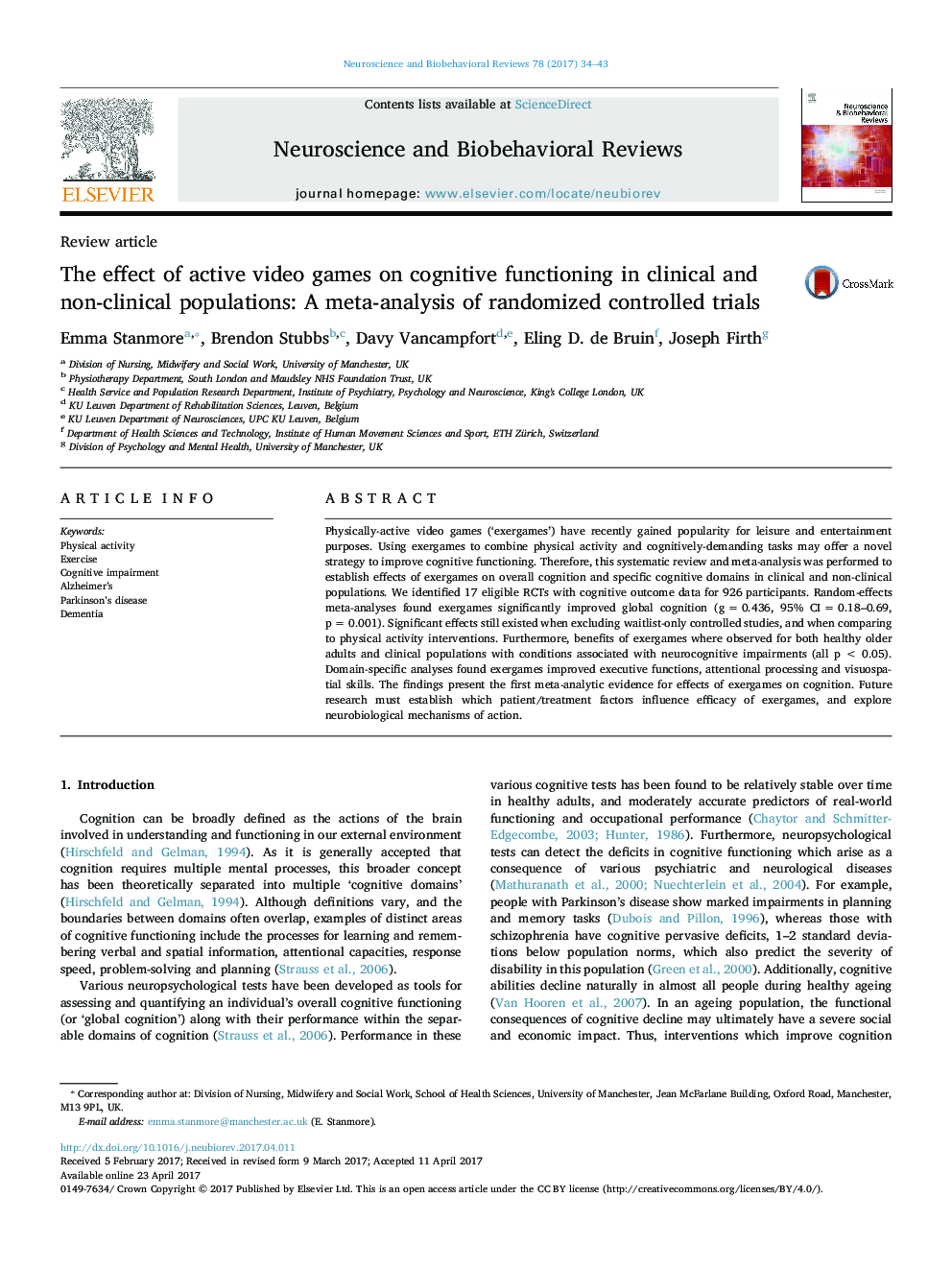| Article ID | Journal | Published Year | Pages | File Type |
|---|---|---|---|---|
| 5043482 | Neuroscience & Biobehavioral Reviews | 2017 | 10 Pages |
â¢This is the first meta-analysis of active video games ('exergames') for cognition.â¢Our search identified 17 randomized controlled trials with 926 participants in total.â¢Exergames improved cognition in both clinical and non-clinical populations.â¢Significant effects were found executive functions, attention and visuospatial skills.
Physically-active video games ('exergames') have recently gained popularity for leisure and entertainment purposes. Using exergames to combine physical activity and cognitively-demanding tasks may offer a novel strategy to improve cognitive functioning. Therefore, this systematic review and meta-analysis was performed to establish effects of exergames on overall cognition and specific cognitive domains in clinical and non-clinical populations. We identified 17 eligible RCTs with cognitive outcome data for 926 participants. Random-effects meta-analyses found exergames significantly improved global cognition (g = 0.436, 95% CI = 0.18-0.69, p = 0.001). Significant effects still existed when excluding waitlist-only controlled studies, and when comparing to physical activity interventions. Furthermore, benefits of exergames where observed for both healthy older adults and clinical populations with conditions associated with neurocognitive impairments (all p < 0.05). Domain-specific analyses found exergames improved executive functions, attentional processing and visuospatial skills. The findings present the first meta-analytic evidence for effects of exergames on cognition. Future research must establish which patient/treatment factors influence efficacy of exergames, and explore neurobiological mechanisms of action.
